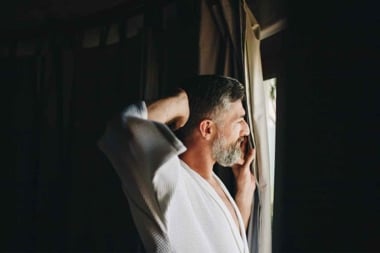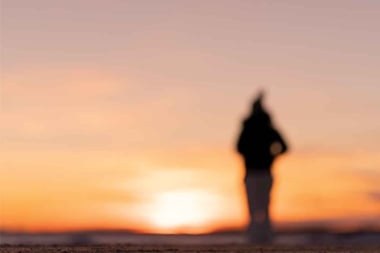
I've been fascinated with traditional Chinese medicine (TCM), and more specifically acupuncture, since I was a kid. I was first diagnosed with migraines at a very young age. At that time, the only other person I knew who suffered migraines was my aunt, and she went to an acupuncturist for treatment.
If, like Rob and Toni, you’re new to natural health, you’ll want to join them in learning about two specialized natural health modalities this month.
Rob finds out what a traditional Chinese medicine doctor can do for him, and Toni receives some useful remedies from a master herbalist.
I’ve been fascinated with traditional Chinese medicine (TCM), and more specifically acupuncture, since I was a kid. I was first diagnosed with migraines at a very young age. At that time, the only other person I knew who suffered migraines was my aunt, and she went to an acupuncturist for treatment.
So when I heard that I was going to be seeing Melissa Carr, a doctor of TCM, I was excited–I wanted see what she could do for my headaches and some of my other health problems.
Go with the Flow
Dr. Carr practises a nontraditional form of TCM. Inspired by her own mixed cultural background, she incorporates both Eastern and Western medical philosophies into her practice. The Eastern influence is reflected in the philosophy that we are all gardeners whose jobs are to help our gardens (ourselves) thrive. To do so, we must ensure that we nurture our gardens and ensure that our internal energy systems are balanced and flowing.
Sticking with the Concepts
During my first visit, Dr. Carr explained that TCM is based on two concepts. The first is the interaction yin and yang, which are the complementary bodily forces. If the yin/yang is imbalanced, illness occurs.
The second concept is qi (pronounced “chee”), which is energy. There is qi in us and all around us: our congenital qi, food qi, pathogenic qi (which attacks our bodies), defensive qi, circulatory system qi, and internal organ qi. Any disruptions of qi can produce symptoms for various illnesses.
After we discussed my various health issues, Dr. Carr noted the following problems:
- Spleen energy (yin/yang) imbalance, which not only manifests in digestive issues but also in sleeplessness (too many thoughts) and blood sugar imbalance
- Liver qi stagnation, which can cause migraines (from stress) and eye-related issues, such as bad eyesight and colour-blindness (I have both)
Traditional Chinese medicine pairs TCM “organs,” which are different from our physical organs, into five groups that translate to one of five elements (earth, metal, water, wood, and fire). These five elements are all interconnected; any deficiency or excess will disrupt the other elements. For me, Dr. Carr concentrated on the spleen/stomach pair, whose element is earth, and the liver/gallbladder pair, whose element is wood.
A Little Ow-Qi
During my second visit, Dr. Carr addressed my elemental imbalances through acupuncture. Before starting, she explained the procedure to dispel my fears.
People experience acupuncture in many different ways. TCM practitioners expect patients to feel a sensation–numbness, aching, tingling, warmth, distension, heaviness, or lightness–and might manipulate a needle until one of these sensations occurs. Sometimes it’s painless, which was mostly my experience (just a little sting when she put the needles in my hands and lower legs).
Considering how painless the procedure was, I’ll have no difficulty going for the few more treatments that might be required to effectively treat my headaches.




